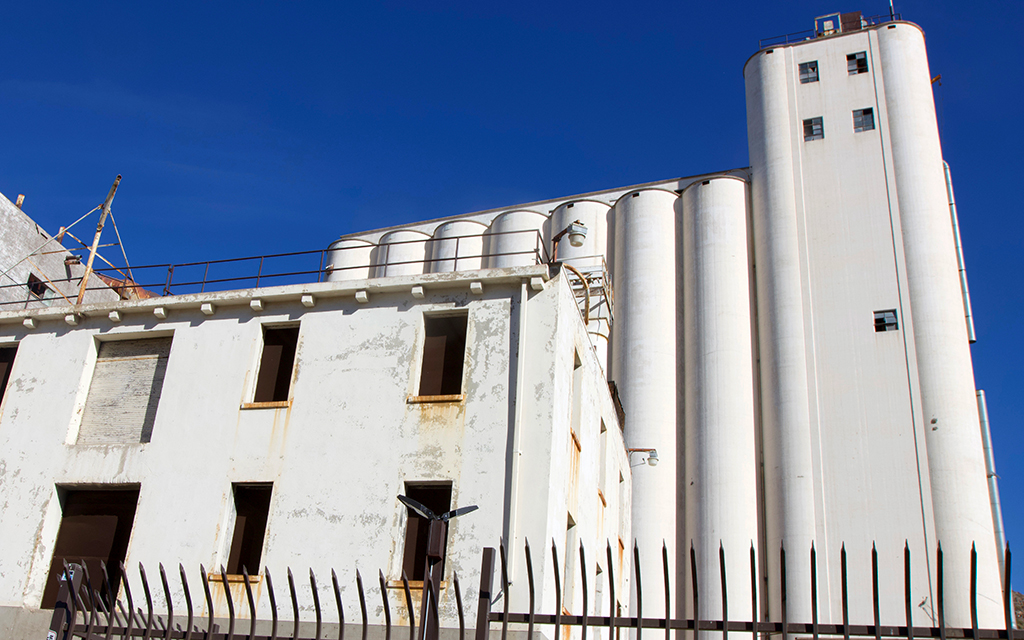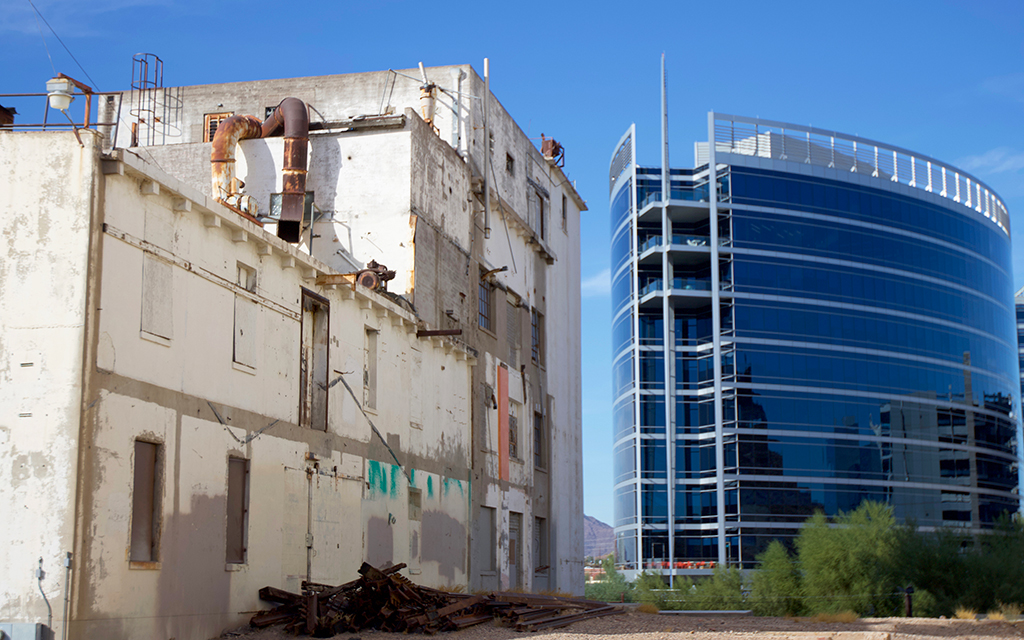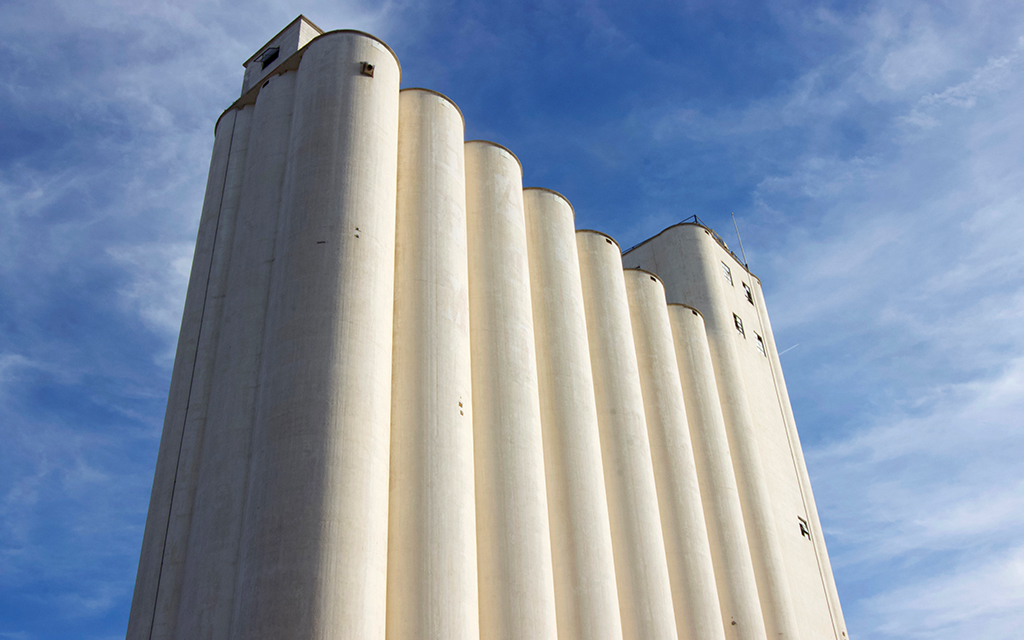TEMPE – The Hayden Flour Mill silos and building have stood vacant since the mill officially closed in 1998. But that’s about to change.
In October, the city of Tempe announced the approval of a restoration and redevelopment plan for the historic Hayden Flour Mill, which stands at the corner of Mill Avenue and Rio Salado Parkway.
“The mill is truly a central, iconic building and very unique building to Tempe’s history,” said Jared Smith, senior curator at the Tempe History Museum. “It makes sense that that building is a focal point going forward.”
The current building operated from 1918 to 1998, when it closed. Since 2001, multiple renovation attempts have been proposed to no avail, mostly due to an expiration of development rights.
In 2021, Tempe issued a request for proposal for new developers and received two responses.
Plans are underway for a revitalization of the Hayden Flour Mill in Tempe. A current-day photo of the mill compares to one taken in 1975. (Photos by
Hunter Fore/Cronkite News and courtesy of Tempe History Museum)
In early 2022, the city entered negotiations for development of the mill site and surrounding area with Venue Project, a company with experience restoring iconic buildings, and Sunbelt Holdings, which has been involved in other Tempe development projects. In October, the agreement was approved, and now the work toward revitalization can begin.
The development project calls for new restaurants and shops, a public park, restoration of the mill and its silos, and an improved trailhead to the A Mountain.
Within the next year, an environmental investigation will be done on the site to identify any harmful materials. The next step will be taking inventory of the equipment that was left behind in the building and cleaning it out or integrating it into the project as well as cleaning up the grounds of the site to begin designing the public park, according to Josh Rutherford, economic development administrator for the mill project.
Construction will likely begin in the next two to three years, and within five years, the majority of the project will be complete, Rutherford said.
Along with the development partners, the Salt River Pima-Maricopa Indian Community has been involved in negotiations about the mill, and a memorandum of understanding has established a foundation of communication between the city, the developers and SRP-MIC.
“As we move forward, every step, like the park boundaries, the development itself, they’re (SRP-MIC) very much involved as a development partner with us,” Rutherford said.





